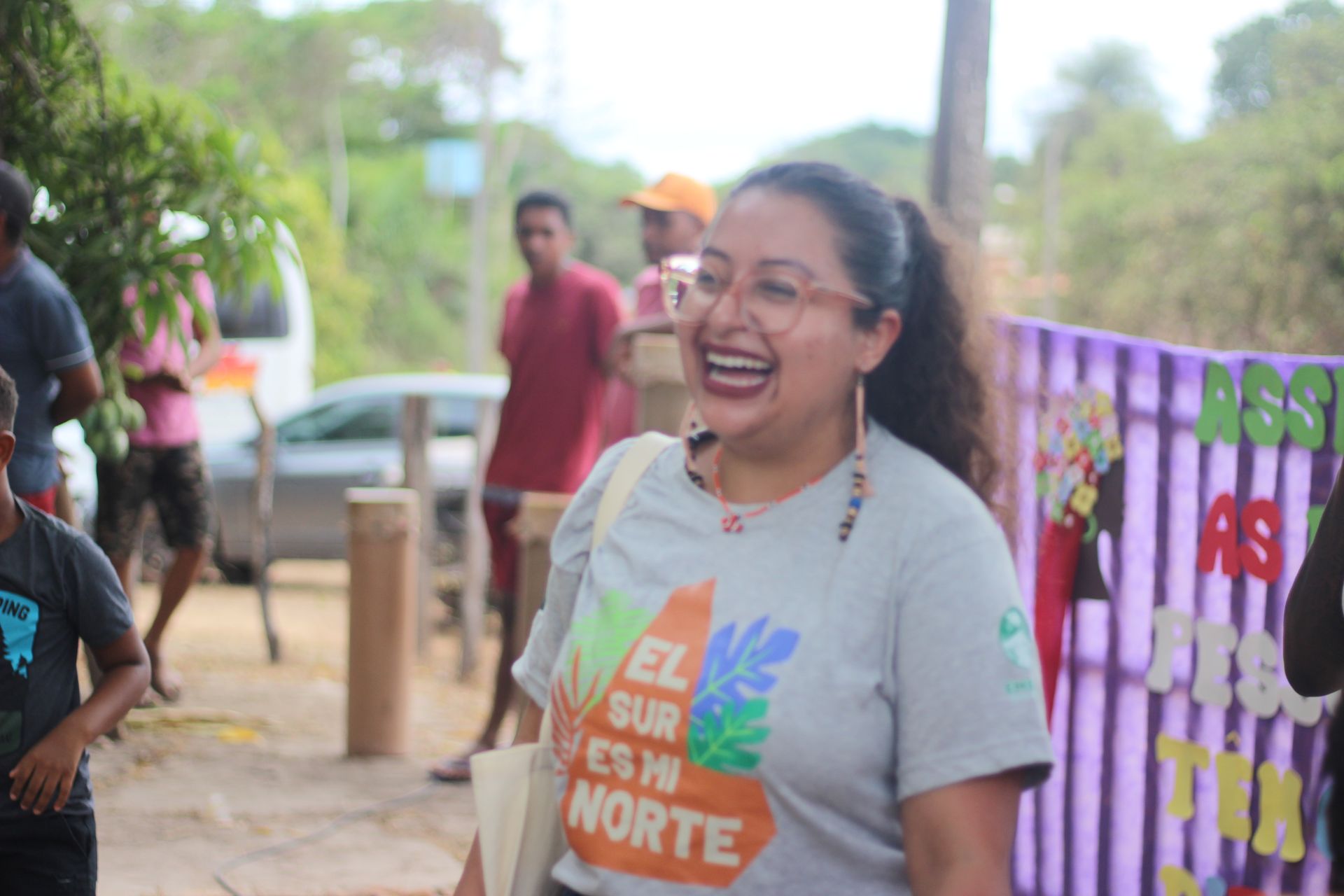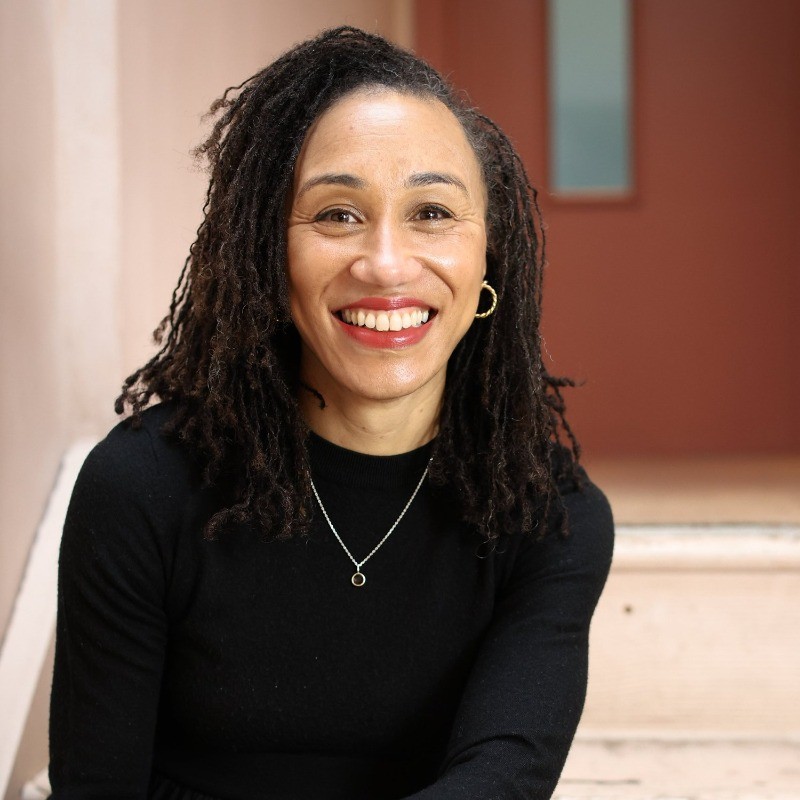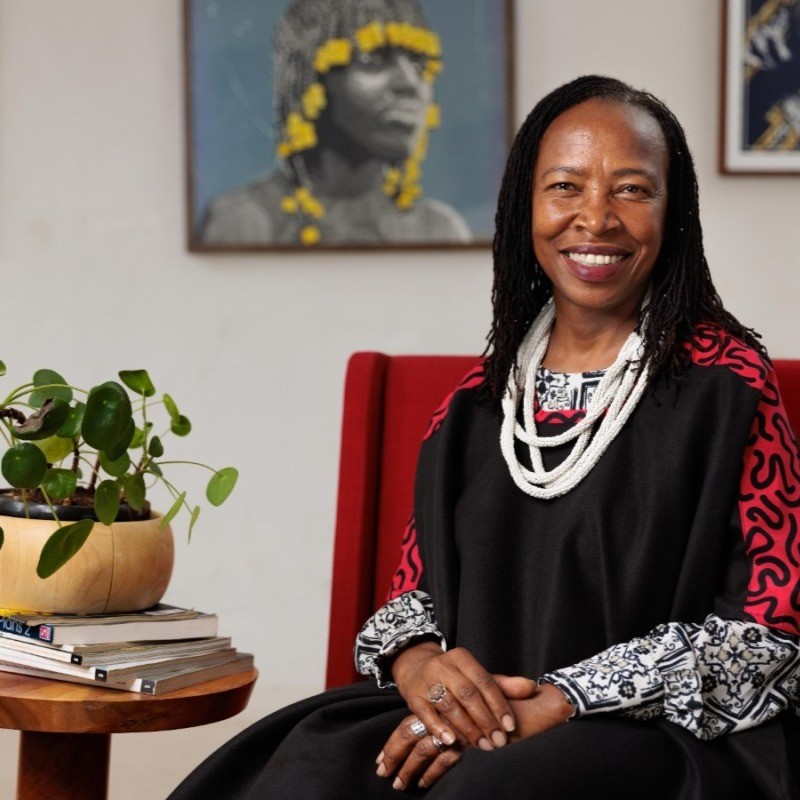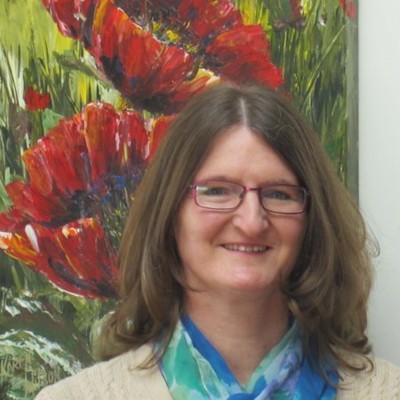Events
The events below are populated from several external sites that publicize grant events relevant to organizations like yours. We also have internal events from Kuja. Use the filters to explore the events that are interesting to you and apply to those that you want to attend!
- Adult Welfare
- Adult Welfare
- Animal Welfare
- Animal Cruelty
- Animal Experimentation
- Animal Rights
- Animal Welfare
- Arts & Culture
- Art
- Art Conservation
- Arts & Culture
- Culture
- Curating
- Documentary Making
- Film
- Galleries
- Games
- History
- Humanities
- Libraries
- Literature
- Museum
- Music
- Performing arts
- Podcasting
- Poetry
- Public arts
- Storytelling
- Visual arts
- Children & Youth
- Child Abuse
- Child Development
- Child Neglect
- Child Nutrition
- Child Participation
- Child Protection
- Child Rights
- Child Soldiers
- Child Survival
- Children & Youth
- Children with Disabilities
- Children’s Education
- Children’s Health
- Early Childhood Development and Education
- Early Marriages
- Orphans & Vulnerable Children
- Research
- School Health
- Sexual and Gender-Based Violence
- Youth
- Youth Economic Empowerment
- Youth Empowerment
- Youth Engagement
- Youth Leadership
- Youth Participation
- Youth Policies
- Youth Representation
- Youth and Climate Change
- Climate Change
- Agroforestry
- Biodiversity
- Biodiversity and Ecosystems
- Carbon Credits
- Chemical Risks
- Climate Adaptation
- Climate Change
- Climate Financing
- Climate Mitigation
- Climate Policy
- Climate Research
- Climate Resilience
- Conservation
- Decarbonization
- Desertification
- Droughts
- Early Warning Systems
- Eco-Friendly Production
- Eco-tourism
- Emerging Technologies
- Emission Reduction
- Environment
- Environmental Justice
- Environmental, Social and Governance
- Forest Management/ Conservation
- Fossil Fuel Management
- Grassroots Climate Response
- Habitat Restoration
- Hazardous Waste
- Invasive Species Control
- Just Energy Transition
- Land Degradation
- Land Restoration
- Marine conservation
- Mountain Ecosystems
- Mountains
- Natural Resource Management
- Ocean Conservation
- Rangelands
- Recycling
- Reforestation
- Renewable Energy
- Sea Conservation
- Sewage Management
- Solid Waste Management
- Sustainable Fashion
- Sustainable Tourism
- Sustainable Use
- Tree Planting
- Urban Green Infrastructure
- Urban Sustainability
- Waste Collection
- Waste Management
- Water Management
- Water Pollution
- Wildlife Conservation
- Communications and Advocacy
- Advocacy
- Communications
- Communications and Advocacy
- Media
- Storytelling
- Community Development
- Community Development
- Education
- Adult Literacy
- Alternative Education
- Digital Literacy
- Early Childhood Development and Education
- Education
- Education Policy
- Education Research
- Education Technologies
- Education Workforce
- Education in Emergencies
- Foundational Learning
- General Education
- Girls’ Education
- Higher Education
- Inclusive Education
- Information and Communication Technology
- Language Education
- Natural Sciences
- Post-Secondary Education
- Primary Education
- School Supplies
- Science, Technology, Engineering, and Mathematics
- Secondary Education
- Skills Development
- Social and Emotional Learning
- Social and Human Sciences
- Technical / Vocational Training
- Elderly
- Age Discrimination
- Elderly
- Elderly People
- Healthy Ageing
- Older People Rights
- Food and Agriculture
- Agricultural Machinery
- Agricultural Research
- Agriculture
- Agro Ecology
- Agroecology
- Farmer’s Rights
- Fishing
- Food Aid
- Food Feminism
- Food Policies
- Food Security
- Food Sovereignty
- Food Systems
- Food Systems Research
- Food Value Chains
- Food and Agriculture
- Genetically Modified Crops
- Irrigation Systems
- Markets and Trade
- Organic Farming
- School Feeding
- Seed Systems
- Soil Health Improvement
- Sustainable Agriculture
- Sustainable Farming
- Gender Equality
- Discriminatory Policies
- Domestic Workers
- Early Marriages
- Early Pregnancy
- Feminism
- Gender
- Gender Equality
- LGBTQIA+ Equality
- Leadership at Work
- Legal Protection
- Maternal and Child Healthcare
- Research
- Sex Work
- Sexual and Gender-Based Violence
- Sexual and Reproductive Health Rights
- Women & Girls
- Women and Girls in STEM
- Women with Disabilities
- Women’s Decision Making
- Women’s Empowerment
- Women’s Health
- Women’s Leadership
- Women’s Livelihoods
- Women’s Public Participation
- Women’s Representation
- Women’s Rights
- Governance
- Activism
- Democracy
- Diplomacy
- Elections
- Foreign Policy
- Governance
- National Security
- Political Movement
- Public Policy
- Healthcare
- Autoimmune Diseases
- Basic Care
- Chronic Illnesses
- Communicable Diseases
- Community Health
- Critical Illnesses
- Disability Healthcare
- Disease Surveillance
- Environmental Health
- Epidemiology
- Family Planning
- Food Safety
- HIV/AIDS
- Health Financing
- Health Promotion
- Healthcare
- Healthcare Technologies
- Hunger Alleviation
- Immunization
- Infectious Diseases
- Malaria
- Maternal Health
- Maternal and Child Health Care
- Maternal and Infant Health Care
- Menstruation
- Mental Health
- Neglected Tropical and Vector-Borne Diseases
- Newborn Health
- Non-Infectious Diseases
- Noncommunicable Diseases
- Nutrition
- Obesity
- Oral Health
- Pandemic
- Physical Health
- Primary Health
- Public Health
- Reproductive Health
- Research
- Road Safety
- Sexual Health
- Sexual and Reproductive Health and Rights
- Sexually Transmitted Infections (STIs)
- Sickle Cell Disease
- Soil-Transmitted Helminth Infections
- Substance Abuse
- Traditional Medicine
- Tuberculosis
- Vaccines
- Water, Sanitation and Hygiene
- Human Rights and Social Justice
- Child Protection and Welfare
- Civic Engagement
- Civil Society
- Disability Rights
- Disadvantaged Communities
- Diversity, Equity and Inclusion
- Economic Justice
- Ending Abuse
- Female Activists
- Gender-based Violence
- Human Rights
- Human Rights and Protection
- Human Rights and Social Justice
- Human Trafficking
- Indigenous Rights
- LGBTQ+ Rights
- Racial Justice
- Refugee Rights
- Research
- Sexual Exploitation and Abuse
- Social Action
- Social Justice
- Youth Rights
- Humanitarian Aid
- Asylum Seekers
- Camp Management
- Cash-Based Transfers
- Climate-Smart Disaster Risk Reduction
- Conflict Areas
- Detainees
- Disaster Management
- Disaster Relief
- Disaster Risk Preparedness and Response
- Disaster Risk Reduction and Recovery
- Displacement
- Early recovery
- Economic Recovery
- Emergency Response
- Essential Services
- Forced Displacement
- Healthcare in Emergencies
- Humanitarian Aid
- IDP Settlements
- International Humanitarian Law
- Medical Commodities
- Migration
- Natural Disasters Response
- Prisoners of War
- Protection
- Reconnecting Families
- Refugee Registration
- Relief Assistance
- Research
- Resettlement
- Resilience Building
- Rights of People in Conflict
- Shelter
- Torture Survivors
- Urban Refugees
- Water, Sanitation and Hygiene
- survivor-led community-based response (sclr)
- Leadership
- Leadership
- Leadership Building
- Leadership Mentorship
- Leadership Training
- Localization and Decolonizing Aid
- Decolonizing Aid
- Decolonizing Bilaterals
- Decolonizing INGOs
- Decolonizing Multilaterals
- Decolonizing Philanthropy
- Localization
- Localization and Decolonizing Aid
- Locally-Led Development
- Shifting Power
- Other
- Other
- Peace
- Community Security
- Conflict and Gender Sensitivity
- Inclusive Governance
- Peace
- Peace and Reconciliation
- Peacebuilding
- Peacekeeping
- Security
- Philanthropy , Giving and Development Aid
- Bilateral Aid
- Charity
- Community Philanthropy
- Development Aid
- Giving
- Individual Donations
- Multilateral Aid
- Philanthropy
- Philanthropy , Giving and Development Aid
- Religious Giving
- Social Entrepreneurship
- Social Impact
- Social Impact Investment
- Volunteering
- Poverty, Livelihoods & Economic Development
- Agribusiness
- Business Growth Programs
- Cash Programming
- Economic Development
- Economic Growth
- Economic and Social Development
- Economic and Social Inequalities
- Enterprise Development
- Entrepreneurship
- Extreme Poverty
- Financial Inclusion
- Income Generation Activities
- Income Security
- Inequity
- Informal Settlements
- Job Creation
- Job Skills Training
- Livelihood Development
- Livelihoods
- Loans
- Microfinance
- Poverty
- Poverty Alleviation
- Poverty, Livelihoods & Economic Development
- Private Sector Engagement
- Research
- Rural Development
- Safe Housing
- Savings
- Social Care
- Social and Economic Advancement
- Trade and Investment
- Underprivileged Communities
- Vulnerable People
- Women’s Entrepreneurship
- Workforce Development
- Public Safety
- Community Resilience
- Conflict Resolution
- Crime Prevention
- Homelessness
- Housing
- Infrastructure Development
- Legal Services
- Public Safety
- Religious Activity
- Church
- Church Outreach
- Church-Based
- Faith-Based Service Delivery
- Interfaith Cooperation
- Interfaith Dialogue
- Religious Activity
- Seva
- Waqf
- Zakat
- Renewable Energy
- Clean Cooking
- Clean Energy
- Electricity
- Emissions Reduction
- Energy Financing
- Energy Transition
- Geothermal Energy
- Green Energy
- Industry Decabornization
- Off-Grid Renewable Energy
- Public Financing
- Research
- Solar Energy
- Wind Energy
- Science, Information and Communication Technology
- Artificial Intelligence
- Biology
- Blockchain
- Digital Products
- Earth Sciences
- Engineering
- Free Internet
- Health Sciences
- Internet Access
- Internet Connectivity
- Internet of Things
- Safe Internet
- Science, Information and Communication Technology
- Science, Technology, Engineering, and Mathematics
- Sciences
- Software and IT
- Telecommunications
- Website Development
- Sports and Recreation
- Equal Play
- Sports and Recreation
- Sports for Development
- Sustainable Development
- Sustainability
- Sustainable Development
- Sustainable Improvements
- Water, Sanitation and Hygiene
- Adequate Sanitation
- Clean Water
- Development Water, Sanitation and Hygiene
- Emergency Water, Sanitation and Hygiene
- Proper Hygiene Practices
- Public Health Water, Sanitation and Hygiene
- Safe Drinking Water
- Safe Water
- Urban Water, Sanitation and Hygiene
- Water Access
- Water Management
- Water Resilience
- Water, Sanitation and Hygiene
RISE FOR PHOKA is a volunteer-powered, youth and community-led development organization in Malawi that focuses on tackling climate change and sustainable development issues and is committed to taking care of the most vulnerable members of their communities, such as children and the elderly. Their support comes from income generated locally by visiting volunteers ’contributions, individual donations, and community-driven economic development initiatives. As Bhavna, one of their supporters stated, they are doing development “the way our ancestors used to do it.”
Join us for a conversation with Kondwani Msyalie, RISE FOR PHOKA Executive Director and two of key supporters to explore this community-centered Global South model built on the strong belief that resources for what we do can come from within communities themselves.
Live translation to French and Spanish will be available
Date and Time : 26th June, 2025
- Kenya - 17h00
- Malawi - 16h00
- UK - 15h00
Speakers
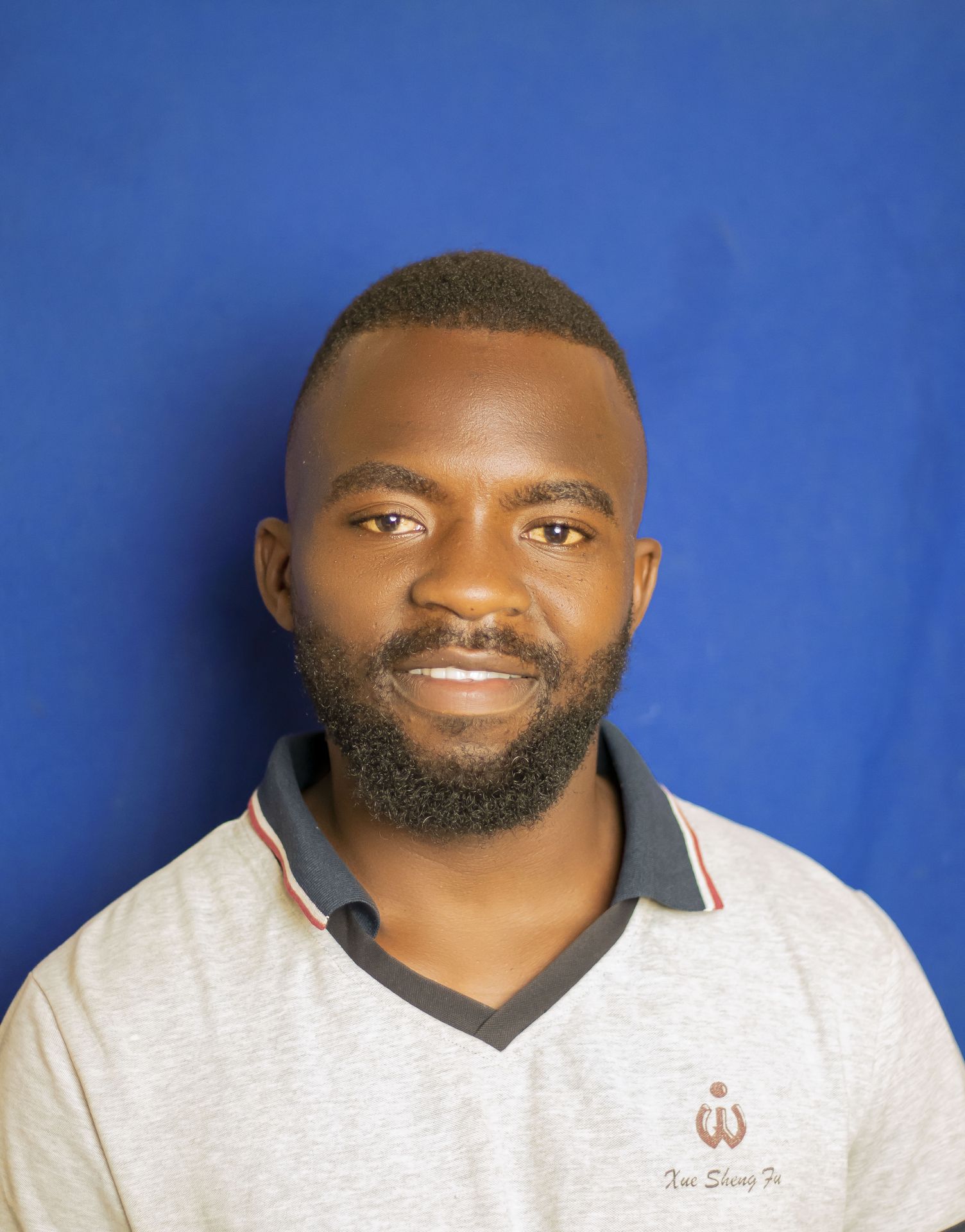
Kondwani Msyalie is the Founder and Executive Director of RISE FOR PHOKA, a grassroots Community Foundation in Livingstonia, Malawi, dedicated to sustainable community development. He holds a Bachelor’s degree in Environmental Management and a University Certificate of Education from the University of Livingstonia. Passionate about community empowerment, Kondwani leads projects focused on sustainable agriculture, education, and social support for vulnerable groups. Through his leadership, RISE FOR PHOKA has mobilized local resources and fostered partnerships to drive positive change.
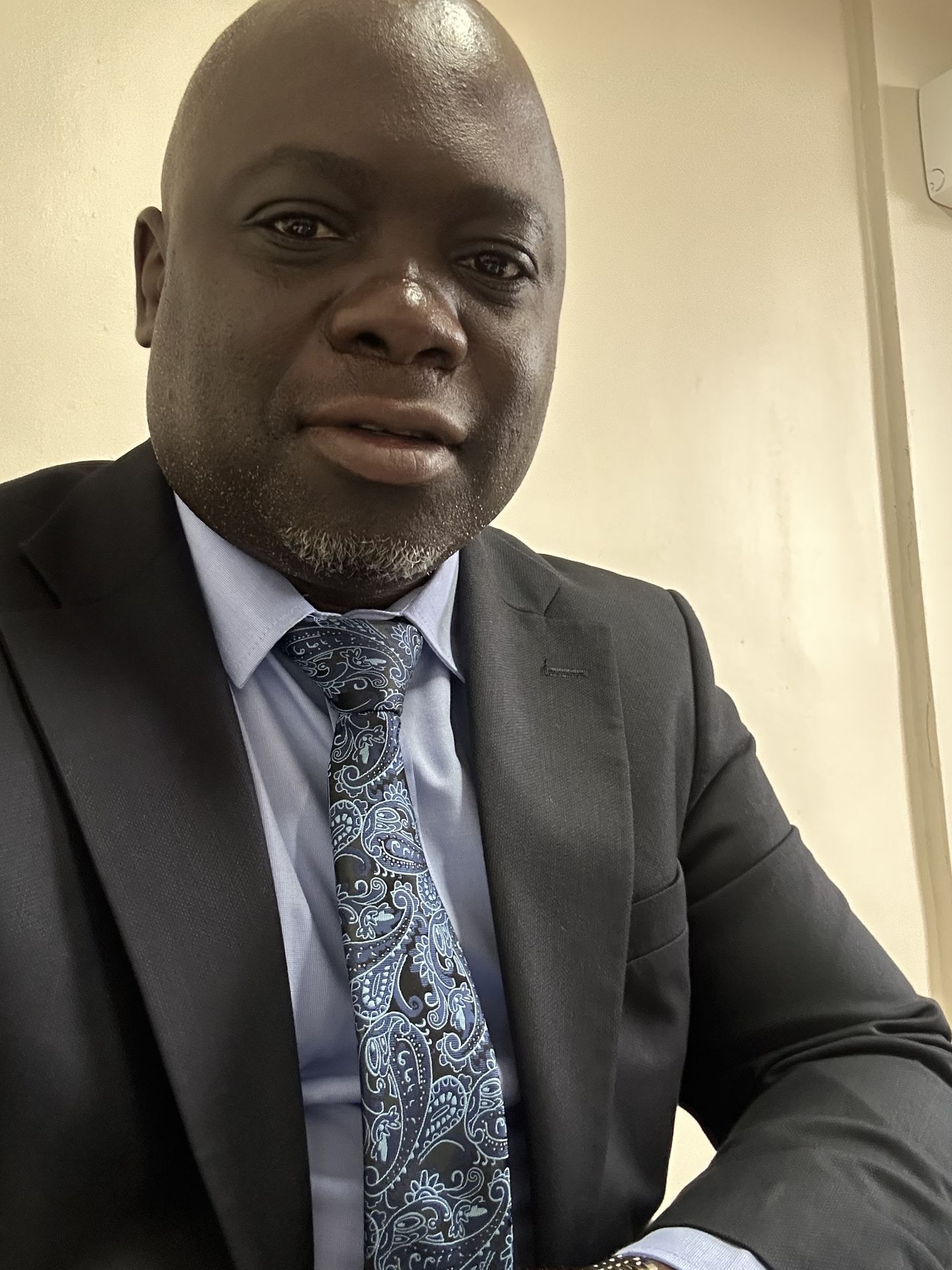
Frank Charles Kasonga is the Executive Director of Mudzi Connect, where he oversees the community development efforts of a local NGO that has improved the health, education, and economic opportunity and social justice for more than 600,000 Malawians to date. Frank is a published author with 20+ years of hands-on experience in project design and proposal development, organizational development, capacity building and training, grants administration, governance, environmental justice, people management, financial tracking, and monitoring and evaluation. Frank holds a Master’s Degree in Transformative Community Development from Mzuzu University, BSc in Social Science, and a Law certificate from Staff Development Institute. Frank is a leader by nature, a team-player, capacity builder, excellent writer, and a charismatic trainer. Frank is widely regarded as a leader in promoting locally-led development and a frequent speaker and panelist on the topic.
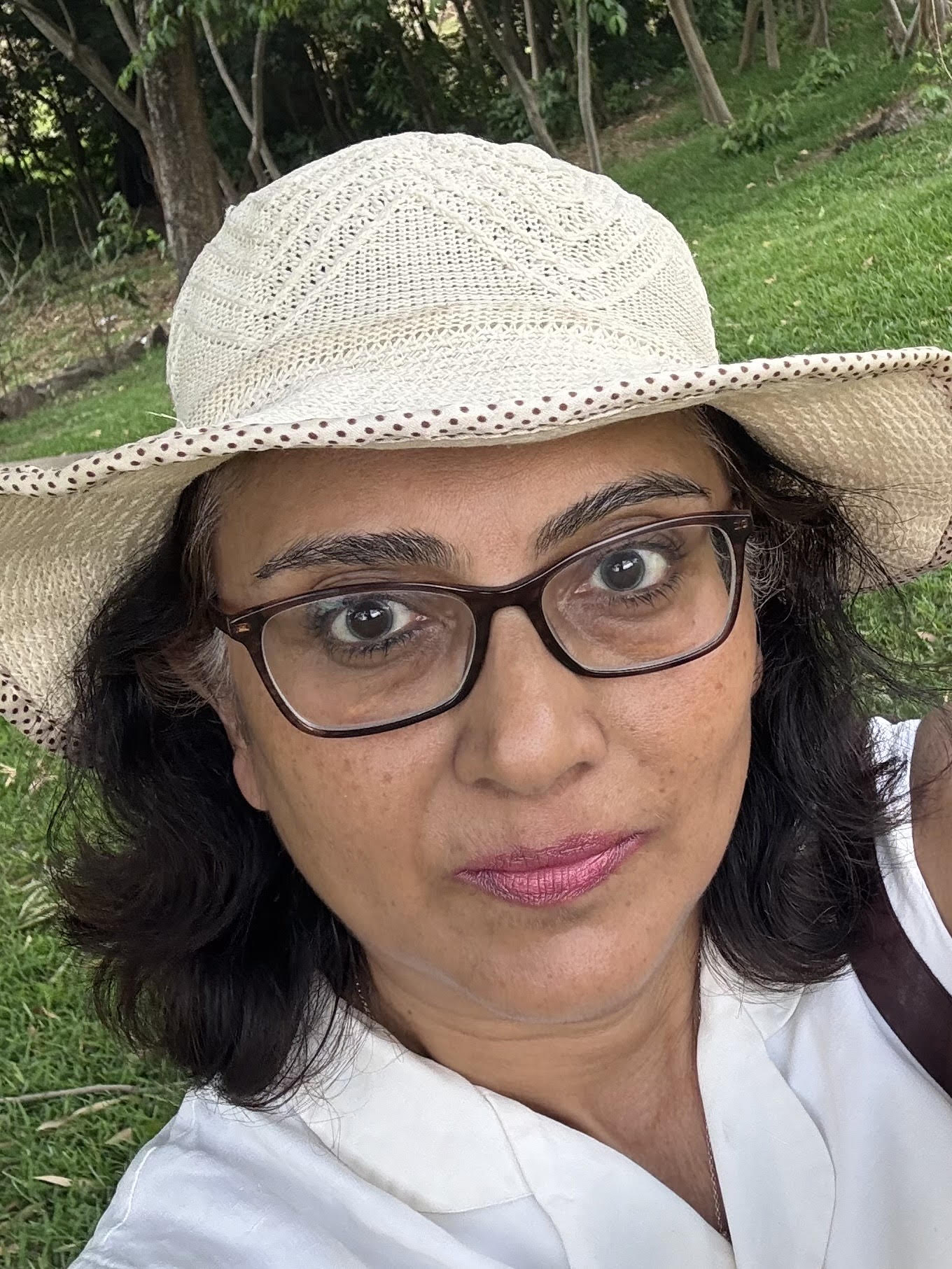
Bhavna Naik is a professionally qualified Finance Manager from the UK. She is employed in the charitable sector, and was born in Zambia, where her parents initially migrated to from India. In 2022, she was seconded to Malawi for three years as Head of Finance for a social enterprise.
Having witnessed an unhealthy dependency culture in Malawi, she collaborated with a Malawian founded charity- Rise for Phoka to progress the idea of sustainable communities by buying farmland with the aim to grow and sell the produce to generate income to fulfill the charitable objectives of the organization.
She is a passionate disrupter, believes in giving with grace and dignity, and embraces grass roots values and nature.
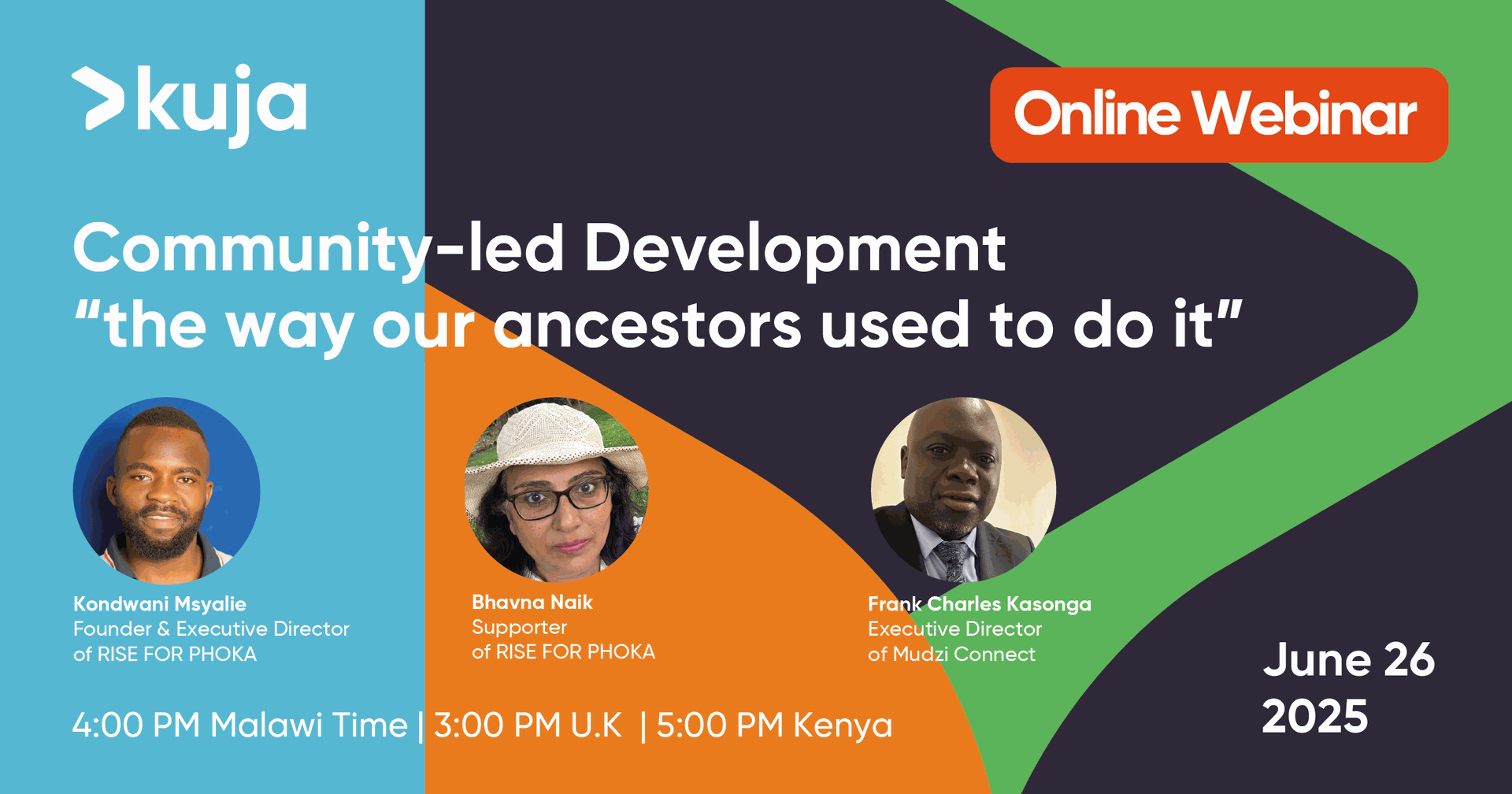
Across Latin America, thousands of local, grassroots, peasant, and Indigenous organizations continue to be excluded from major philanthropic initiatives and international funding. Underlying causes include racism, classism, the rural–urban divide, and internal and subregional colonialism, among other factors. In this webinar, Red Comunidades Rurales (member of the Alianza de Fondos del Sur), Fondo Emerger (member of the Alianza de Fondos del Sur), and Instituto Procomum (member of Rede Comuá and the Alianza Territorial) will share their experiences developing collaborative, participatory, and community-based responses to challenge systemic racism, colonialism, and discrimination in philanthropy.
We will address topics such as:
Structural discrimination in access to international cooperation resources for local organizations, rural communities, peasant families, and Indigenous peoples;
Alternative philanthropic experiences and practices, such as participatory grantmaking platforms, community savings groups, and alternative methodologies for grant application and evaluation;
Resource decentralization, the valuing of community knowledge, and trust-based shared governance;
Strengthening capacities within communities so that organizations can identify their own resources, and enhance their resilience to the barriers imposed by the international cooperation system.
Speakers
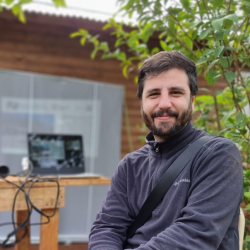
Facundo Ibarlucía – Coordinator of Information and Knowledge Management, Red Comunidades Rurales / Alianza de Fondos del Sur
Political scientist specialized in technology service management and the design, monitoring, and evaluation of socio-environmental projects. Since 2012, he has worked with Red Comunidades Rurales and the Global Environment Facility (GEF), where he served as Director of the Rural Community Project Bank and Coordinator of the Research and Knowledge Management Area. He has led learning communities and provided consulting for UNDP's Small Grants Programme (SGP). He has worked on initiatives such as Force for Good (JP Morgan), Resource Mapping (Telecom), and rural development surveys.
Laura V. Flórez – Head of Programs, Fondo Emerger / Alianza de Fondos del Sur
Laura serves as Head of Programs at Fondo Emerger. There, she supports grassroots organizations and collectives in the application process through open calls and coordinates the proposal evaluation and selection processes. She focuses on reducing gaps between communities and donors and developing tools to highlight the local resources held by the planet’s guardians. Throughout her career, Laura has focused on reducing inequalities in access to external resources and uplifting local resources in grassroots collectives and organizations, through social entrepreneurship and support for socio-environmental initiatives.
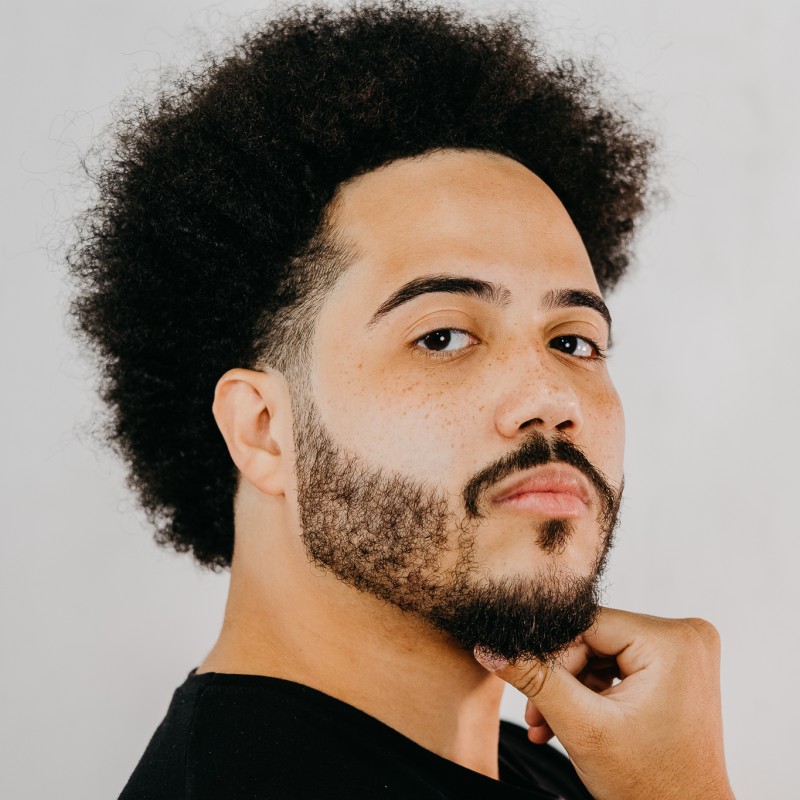
Fabrício Freitas – Instituto Procomum / Rede Comuá and Alianza Territorial
Fabrício Freitas is a non-binary Afro-Brazilian administrator, cultural producer, artist, and activist. They currently serve as Director of Resources at Instituto Procomum, a social organization based in the Baixada Santista region (São Paulo coast – Brazil) that works at the intersection of culture, citizen innovation, climate justice, solidarity economy, and care as a political and methodological axis. Fabrício also represents Instituto Procomum in Rede Comuá and the Alianza Territorial, where they help advance strategies for resource redistribution, community network strengthening, and collaborative territorial practices. They will share the experience of the Alianza Territorial, a coalition of seven Rede Comuá organizations — Casa Fluminense, FunBEA, Instituto Comunitário Baixada Maranhense, ICOM, Instituto Procomum, Redes da Maré, and Tabôa Fortalecimento Comunitário.
Moderator: Mara Tissera Luna, Content Advisor at KujaLearn
Date and Time: June 25, 2025
Mexico City / Guatemala City – 10:00 AM
New York, USA – 12:00 PM
Buenos Aires / Rio de Janeiro – 1:00 PM
London, UK – 4:00 PM
Geneva / Madrid – 5:00 PM
Cape Town, South Africa – 6:00 PM
Nairobi, Kenya – 7:00 PM
Delhi, India – 10:00 PM
Duration: 1 hour and 15 minutes. Language: Spanish, with simultaneous interpretation in English and French.

We are pleased to invite you to the 4th Session of the Pledge Learning Series, "Shaping Mutual Accountability: A Reflection on the First Full Circle of the Pledge Accountability and Learning Mechanism (PALM) as a Mutual Accountability Tool."
The Pledge for Change Learning Series provides an opportunity for strategic lesson-sharing and reflection on emerging issues within the Pledge community. Following the full first circle of collecting and analyzing accountability data, join us as we reflect on the PALM as a tool for fostering mutual accountability. This session will highlight key lessons through an interactive discussion facilitated by representatives from the Pledge Southern-led assessment and the MEAL Working Group.
Date: 25th June 2025
Time: 3 PM Nairobi/ 12 PM GMT/ 1 PM WAT/ 8 AM ET
Facilitator: Blessing Osagie
Natalie Lartey is the founder and director of ‘Wood & Water’ a social enterprise dedicated to a world where humanitarian and environmental stories inspire action towards racial justice. An innovator in her field, Natalie combines traditional communications and knowledge generation approaches, with critical race theory and lived experience perspectives. Natalie is an advisor for the International Institute for Environment and Development (IIED) specializing in research and communications approaches that center racial justice. She is also the co-chair of the Pledge for Change Global Authentic Story Telling Panel. With a Research Masters in media and communications, and a BSc in digital publishing, Natalie brings a robust academic foundation to her interdisciplinary work.
Janet Mawiyoo has over 30-yrs experience in the global non-profit sector. Her work as a leader in building development and philanthropic institutions has stood out over the years, with a very rich experience on leadership and governance matters, organizational development, resource mobilization and asset development. She works with sector leaders, corporate foundations and other local and international development actors on impactful giving, through Galvanizing Africa Consult, (www.galvanizingafrica.com). For 17 years, Janet worked as the Executive Director of the Kenya Community Development Foundation (KCDF) until the end of June 2021, when she stepped down. KCDF was the first community foundation in East and Central Africa, where she provided outstanding leadership in growing a recognized indigenous foundation that has promoted community-driven development. Among her many other commitments, she currently is a member of the Pledge for Change Global Advisory Review Panel.
Alix Tiernan possesses thirty years of program-quality support experience to development and humanitarian programs with an emphasis on performance management and MEL. She has worked both in country programming and at organizational level in program implementation and management, as well as supporting monitoring of advocacy initiatives in organizational teams.She is a pioneer MEAL lead for the development of the Pledge Accountability and Learning Mechanism (PALM). Alix currently works with Christian Aid as the Global Monitoring, Evaluation and Learning Manager and doubles as the Co-Chair for the Pledge MEAL Working Group.
Please register for the session here. We encourage you to share this with your colleagues and partners. Thank you!

